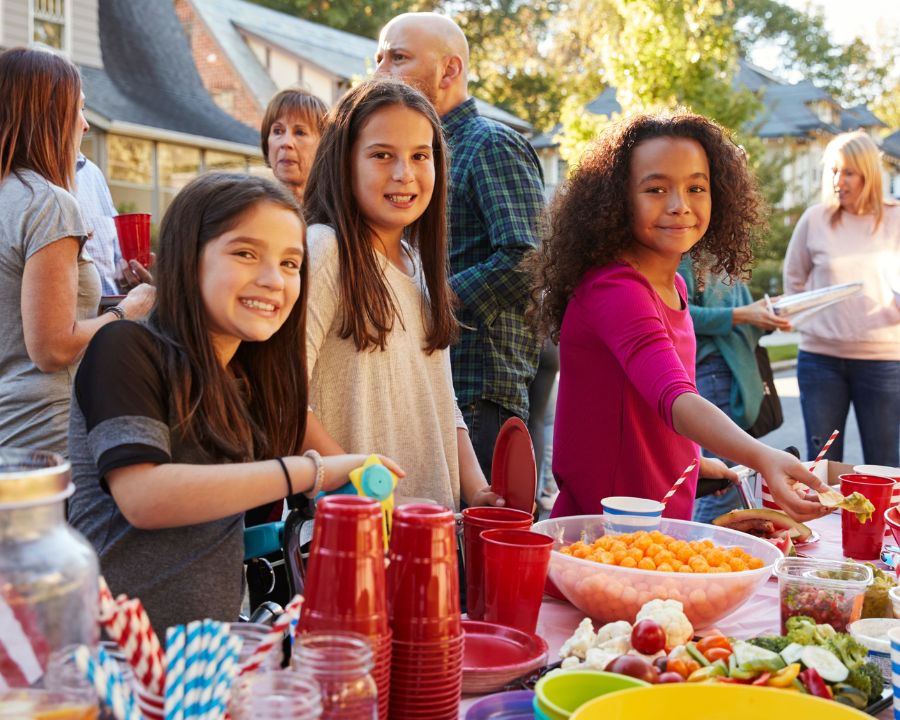Safe partying for teenagers: A parent’s essential guide
Equip your teens with the knowledge and skills they require to stay safe while partying.
As parents, we want our teenagers to enjoy their youth while staying safe. Partying is often a significant part of growing up, but it can come with risks. In Australia, the need for education on safe partying is clear: according to the Australian Institute of Health and Welfare, 31% of teenagers aged 14-17 consumed alcohol in the year leading up to 2022-23.
While this is a substantial reduction from the 69% of young people who consumed an alcoholic drink in 2001, the figures are still cause for concern, particularly if you’re a parent of a teenager.
Understanding the landscape of teen partying and equipping ourselves with the right knowledge is crucial. By doing so, we can guide our children towards making informed decisions and cultivating safer habits.
This guide aims to provide parents with practical strategies and insights to educate themselves about safe partying for teenagers, ensuring that celebrations remain joyful without compromising safety.
Empower yourself about safe partying for teenagers: Key strategies for parents
When it comes to ensuring the safety of young adults at parties, parents must be well-informed. Here are a few practical strategies parents can use to educate themselves about their teens’ safe partying. These tips will help parents understand the risks, communicate effectively with their teens, and promote responsible behaviour during social gatherings for better social safety for youth.

Stay informed about current party trends
Keep up-to-date with the latest party scenes, popular venues, and event types that attract young people. Follow local youth-oriented social media accounts, engage with other parents, and maintain open communication with your teens. Understanding the current partying or socialising landscape helps you provide relevant advice and identify potential risks specific to your area.

Learn about the effects of alcohol and drugs
As a parent, you should educate yourself on the physical and psychological impacts of substances commonly encountered at parties. Understand how alcohol and various drugs affect the developing teenage brain, their short-term risks, and long-term consequences. Resources like the Alcohol and Drug Foundation provide evidence-based information tailored to the Australian context.

Familiarise yourself with local laws and regulations
Become familiar with the legal aspects of partying, including age restrictions for alcohol consumption, curfews, and noise regulations. Understanding these laws helps you set clear boundaries for your teens and ensures they’re aware of the legal consequences of their actions. Each state in Australia may have different regulations, so focus on those relevant to your location.

Attend workshops or seminars on teen safety
Look for local community events, school-organised seminars, or online webinars focused on teen safety and party culture established by youth organisations. These sessions often feature experts in adolescent behaviour, law enforcement officers, and health professionals who can provide valuable insights and practical tips for parents who are navigating this challenging terrain.
What Our Community Says About Us
Our Partners





Support young Australians with Youthsafe
Youthsafe is a leading organisation dedicated to reducing serious injuries in young people. They offer a wide range of services and programs specifically designed to promote safety among Australian youth, including workshops, classroom sessions, and more.
By partnering with Youthsafe, young people, parents, and other adult influencers can access expert knowledge, practical resources, and community support to help guide teenagers towards safer practices whether they’re socialising, driving, working, or participating in sports.
FAQs
Establishing clear safety rules is essential for teen partying. Consider the following key rules:
- Always have a safe transport plan (e.g., designated driver, taxi, or parent pick-up)
- Do not leave drinks unattended or accept them from strangers
- Stay with trusted friends and use a buddy system
- Set a curfew and check-in times
- Provide emergency contact numbers
- Agree on a code word or phrase they can use if they need help
- No drinking and driving under any circumstances
- Know basic first aid and when to call emergency services
Discuss these rules with your teen, explain the reasoning behind each one, and be open to their input. Regularly review and adjust the rules as your teen matures and demonstrates responsibility.
If you suspect your teen has been drinking or using drugs, it’s important to approach the situation calmly and constructively. First, ensure their immediate safety. If you’re concerned about their health, don’t hesitate to seek medical attention. Once they’re safe, wait until they’re sober to have a conversation. Express your concerns without anger or judgement, and listen to their perspective. Try to understand the underlying reasons for their behaviour.
Discuss the risks and consequences of substance use, both legal and health-related. If it’s a one-off incident, consider appropriate consequences while maintaining open communication. If your teen is repeating their behaviour or there are signs of substance abuse, speak to a counsellor or addiction specialist for professional help.


